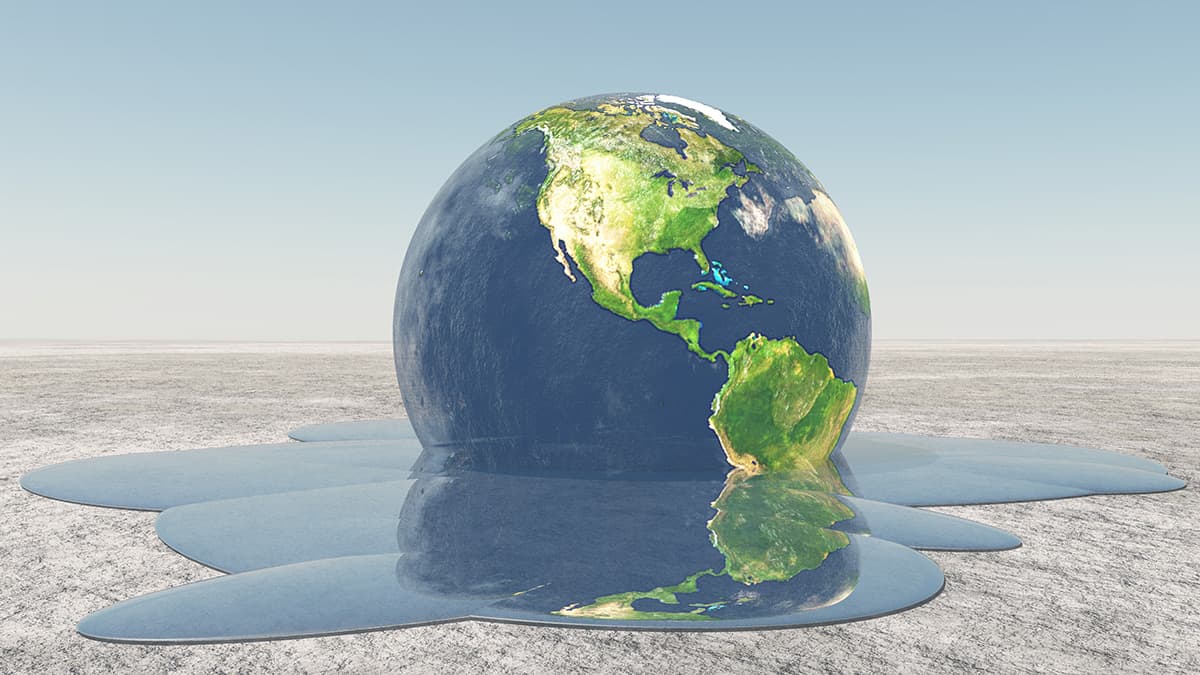
Climate change and global warming have become hot topics in recent years, dominating conversations and headlines around the world. As our planet faces unprecedented changes, it is crucial to arm ourselves with knowledge about these issues.
In this article, we will delve into 14 surprising facts about climate change and global warming that will both enlighten and astound you. From melting ice caps to rising sea levels, these facts will help you understand the magnitude and urgency of the challenges we face.
So grab a cup of coffee, sit back, and prepare to be amazed as we explore the fascinating world of climate change and global warming.
Key Takeaways:
- Climate change is real and has serious consequences. It’s making the Earth warmer, melting polar ice caps, and causing extreme weather events. It’s also threatening food production and putting coastal communities at risk.
- Climate change affects everyone, but it hits vulnerable communities the hardest. It can lead to health problems, loss of biodiversity, and economic instability. We need to take action to protect our planet and all its inhabitants.
The Earth’s average temperature has risen by 1 degree Celsius since the late 19th century.
Climate change is a pressing issue that the world is currently facing. One of the most significant indicators of this phenomenon is the steady increase in the Earth’s average temperature. Over the past century, the planet has seen a rise of approximately 1 degree Celsius – a small-sounding number but with far-reaching consequences. This warming trend is primarily attributed to human activities such as the burning of fossil fuels and deforestation.
The polar ice caps have been melting at an alarming rate.
The effects of global warming are most evident in the polar regions. The Arctic, in particular, has seen a dramatic loss of ice over the past few decades. The melting of the polar ice caps not only contributes to rising sea levels but also disrupts the delicate ecosystem of these regions. Animals such as polar bears and seals rely on the ice for their survival, and the loss of their habitat poses a significant threat to their populations.
Ocean acidification is a direct result of increased carbon dioxide levels.
As carbon dioxide is released into the atmosphere, a significant portion is absorbed by the oceans. This leads to a process known as ocean acidification, whereby the pH level of seawater decreases. This acidification poses a severe threat to marine life, particularly organisms with shells or coral reefs. The acidified waters can hinder their growth and survival, ultimately causing a ripple effect on the entire marine ecosystem.
Extreme weather events, such as hurricanes and heatwaves, are becoming more frequent and intense.
Climate change has been linked to an increase in extreme weather events. Hurricanes, heatwaves, droughts, and heavy rainfall are becoming more frequent and more severe, leading to devastating consequences for human populations. These events can result in the loss of lives, destruction of infrastructure, and displacement of communities.
Climate change affects food production and threatens global food security.
The changing climate poses a significant risk to food production worldwide. Rising temperatures, changing patterns of rainfall, and increased frequency of extreme weather events can lead to crop failures, reduced agricultural yields, and compromised food security. This puts vulnerable populations at an even greater risk of hunger and malnutrition.
Rising sea levels put coastal communities at risk.
As the polar ice caps melt and ocean temperatures rise, sea levels are steadily increasing. This poses a grave threat to coastal communities and low-lying areas around the world. The potential consequences include widespread flooding, erosion of coastlines, and the displacement of millions of people who call these areas home.
The loss of biodiversity is a significant consequence of climate change.
Climate change not only impacts temperature and weather patterns but also disrupts ecosystems and biodiversity. Many species are struggling to adapt to the rapid changes, often leading to population declines or even extinction. This loss of biodiversity can have far-reaching consequences for the delicate balance of ecosystems and the services they provide, such as pollination, water purification, and carbon storage.
Increased carbon dioxide levels in the atmosphere can lead to decreased nutritional value in crops.
Higher levels of carbon dioxide in the atmosphere can impact the nutritional value of staple crops. Studies have shown that elevated CO2 levels can result in reduced levels of essential nutrients such as iron, zinc, and protein in crops like rice and wheat. This poses a potential threat to global food security and human health.
Climate change exacerbates existing inequalities and disproportionately affects vulnerable populations.
Climate change is not only an environmental issue but also a social justice issue. It amplifies existing inequalities and disproportionately affects marginalized communities, including the poor, indigenous populations, and developing countries. These communities often have limited resources and capacity to adapt to the adverse impacts of climate change, making them more vulnerable to its consequences.
The warming of the oceans leads to coral bleaching.
Rising ocean temperatures can result in coral bleaching, a phenomenon where corals lose their vibrant colors and turn pale. This occurs when the symbiotic algae living within the corals get expelled due to stress from increased temperatures. Coral reefs are not only breathtakingly beautiful but also crucial for marine biodiversity, acting as nurseries and habitats for countless species.
Melting permafrost releases large amounts of greenhouse gases into the atmosphere.
Permafrost, which is permanently frozen ground found in Arctic and sub-Arctic regions, contains vast amounts of organic matter and greenhouse gases such as methane. As the permafrost thaws due to global warming, these gases are released into the atmosphere, contributing to the greenhouse effect and further exacerbating climate change.
Climate change poses a threat to human health.
Climate change has direct and indirect impacts on human health. Heat-related illnesses, respiratory problems due to worsening air pollution, and the spread of infectious diseases are just a few examples. The effects are particularly felt in vulnerable populations and regions with limited access to healthcare and inadequate infrastructure to cope with these challenges.
The frequency of forest fires is increasing due to climate change.
Climate change has been linked to an increased frequency and severity of forest fires around the world. Rising temperatures, prolonged droughts, and the accumulation of dry fuel sources in forests create ideal conditions for fires to spread quickly and become more challenging to control. These fires not only destroy habitats but also release vast amounts of carbon dioxide into the atmosphere, further exacerbating climate change.
Climate change can lead to economic losses and instability.
The consequences of climate change extend beyond the environment and affect the global economy. The costs associated with adapting to and mitigating the impacts of climate change are substantial. Extreme weather events, disruptions in agricultural production, and damage to infrastructure can result in significant economic losses and potential instability in financial markets.
Conclusion
In conclusion, climate change and global warming are pressing issues that continue to impact our planet in profound ways. The 14 surprising facts presented in this article shed light on various aspects of these phenomena, highlighting the urgency for action and awareness. From the alarming rise in global temperatures and melting ice caps to the profound effects on ecosystems and human health, it is clear that climate change is a crisis that demands immediate attention.It is crucial for individuals, communities, and governments to work together to mitigate the causes and effects of climate change. By adopting sustainable practices, reducing greenhouse gas emissions, and embracing renewable energy sources, we can contribute to a healthier and more resilient planet. Moreover, spreading awareness, educating others, and supporting organizations and initiatives dedicated to combating climate change can make a significant difference in the long-term preservation of our environment.Together, we can strive towards a future where the impact of climate change is minimized, and the planet thrives once again.
FAQs
Q: What causes climate change?
Climate change is primarily caused by the increased concentration of greenhouse gases in the atmosphere. This is primarily due to human activities such as the burning of fossil fuels, deforestation, and industrial processes.
Q: How does global warming affect the planet?
Global warming leads to rising temperatures, resulting in the melting of polar ice caps, rising sea levels, extreme weather events, and shifts in ecosystems. It can also lead to disruptions in agriculture, water scarcity, and adverse effects on human health.
Q: Is climate change reversible?
While some of the impacts of climate change are irreversible, taking immediate action to reduce greenhouse gas emissions and mitigate its effects can help prevent further damage and promote a more sustainable future.
Q: How can individuals contribute to combating climate change?
Individuals can make a difference by adopting sustainable practices in their daily lives, such as reducing energy consumption, using public transportation, recycling, and supporting renewable energy sources. They can also advocate for policy changes and spread awareness about the importance of addressing climate change.
Q: Are there any positive developments towards tackling climate change?
Yes, there are positive developments such as the worldwide adoption of the Paris Agreement, advancements in renewable energy technologies, and growing global awareness of the urgency to address climate change. However, sustained efforts and collective action are still necessary to achieve significant progress.
Was this page helpful?
Our commitment to delivering trustworthy and engaging content is at the heart of what we do. Each fact on our site is contributed by real users like you, bringing a wealth of diverse insights and information. To ensure the highest standards of accuracy and reliability, our dedicated editors meticulously review each submission. This process guarantees that the facts we share are not only fascinating but also credible. Trust in our commitment to quality and authenticity as you explore and learn with us.


